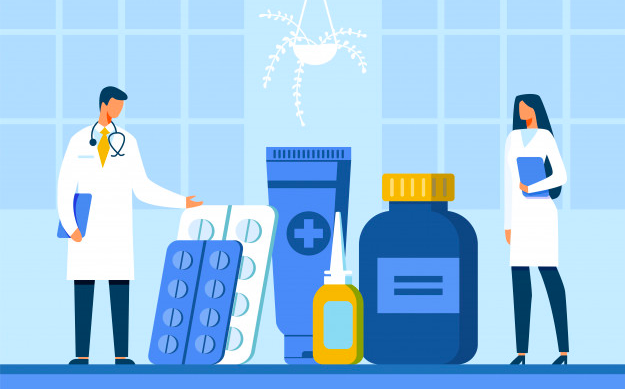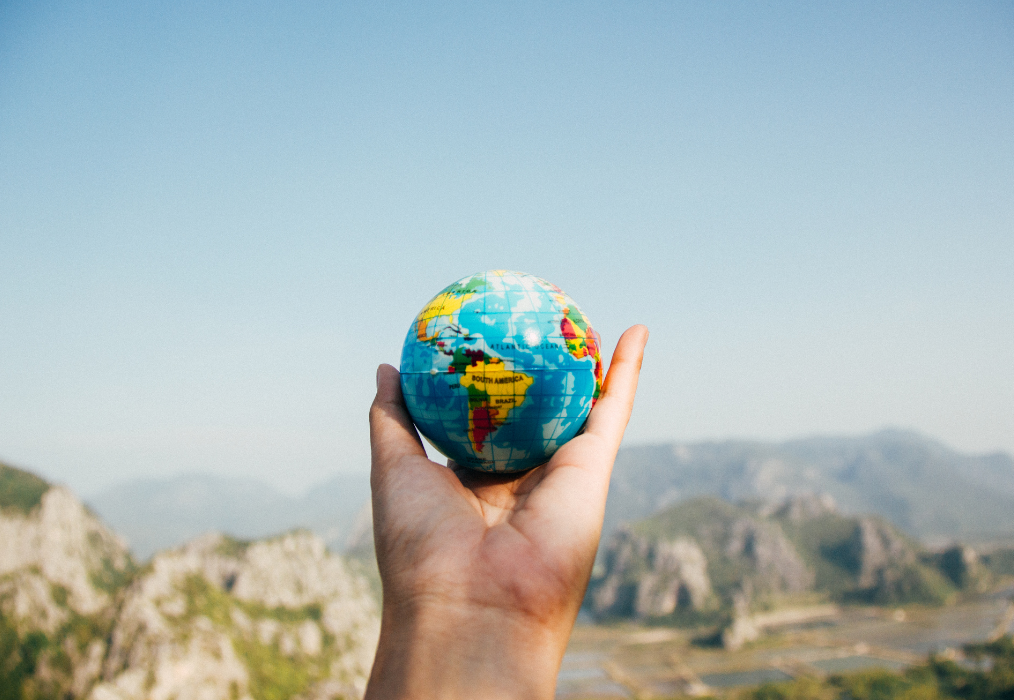In this online info page, the BC Refugee Hub has curated information about the Interim Federal Health Program for Refugee Claimants. This information may be used by advocates, friends and family of claimants and front-line workers.
What is the Interim Federal Health Program?
The Interim Federal Health Program (IFHP) covers certain healthcare benefits for specific groups of people until thowe groups become eligible for provincial or territorial health insurance.
The IFHP provides basic, supplemental and prescription drug coverage within Canada to all eligible newcomers. It also covers the cost of one Immigration Medical Exam (IME) in Canada, as needed, for the following eligible groups:
- refugee claimants
- victims of human trafficking
- victims of domestic violence
- immigration detainees held under the Immigration and Refugee Protection Act (IRPA)
The IFHP doesn’t provide services. The services are provided by health professionals. Instead, claims for healthcare services are submitted to a company called Medavie Blue Cross, which manages IFHP claims. This company covers the cost of services from IFHP-registered healthcare providers (doctors, dentists, hospitals, pharmacies) if you are eligible.
The IFHP does not cover the cost of healthcare services or products that a person may claim (even in part) under a public or private health insurance plan. The IFHP does not coordinate benefits with other insurance plans/programs, so co-payments aren’t possible.
Who is eligible?
The following groups are eligible for the IFHP:
- Resettled Refugees:
- Government-assisted refugees
- Blended visa office-referred refugees
- Joint assistance sponsorship refugees
- Certain refugees sponsored by organizations in cost-sharing arrangements with IRCC
- Certain people who are being resettled in Canada as a result of a public policy or humanitarian and compassionate considerations on the Minister’s own initiative
- Privately sponsored refugees
- Protected persons in Canada
- Individuals who receive a positive decision on their asylum claim
- Individuals who receive a positive decision on their pre-removal risk assessment (PRRA) and become a protected person
Length of coverage
- Basic, supplemental and prescription drug coverage is provided for 90 days from the date the asylum claim or PRRA is accepted, or until they become eligible for provincial or territorial health
- Refugee claimants
A refugee claimant is a person who makes a claim for refugee protection in Canada. This includes a refugee claimant . . .
- waiting for a decision on whether their claim is eligible to be referred to the Immigration and Refugee Board (IRB)
- whose claim for refugee protection has been referred to the IRB and who is waiting for a final decision from the IRB on their claim
- whose claim for refugee protection has been rejected by the IRB
- whose claim for refugee protection is ineligible to be referred to the IRB but who is eligible to apply for a pre-removal risk assessment (PRRA)
- who gets a positive decision on a PRRA and receives a stay of removal
Length of coverage
- Basic, supplemental and prescription drug coverage continues until the beneficiary leaves Canada or becomes eligible for provincial or territorial health insurance.
- IFHP coverage will be cancelled immediately if
- the refugee claimant withdraws their claim for refugee protection
- the claim for refugee protection has been abandoned
- the claim for refugee protection is ineligible to be referred to the IRB and the refugee claimant isn’t eligible to apply for a PRRA
- Victims of human trafficking
- Victims of human trafficking who have a valid temporary resident permit (under section 24(3) of the Immigration and Refugee Protection Act).
Length of coverage
- Basic, supplemental and prescription drug coverage continues for the duration of the temporary resident permit.
- Victims of domestic violence
- Foreign nationals experiencing family violence who have a valid temporary resident permit corresponding to Ministerial Instructions (under section 24(3) of the Immigration and Refugee Protection Act).
Length of coverage
- Basic, supplemental and prescription drug coverage continues for the duration of the temporary resident
- Detainees
- Detainees include individuals incarcerated under the IRPA while in detention.
Length of coverage
- Basic, supplemental and prescription drug coverage continues for the period that the individual is detained by the Canada Border Service Agency under the IRPA.
- Certain other groups
- Other groups may be given eligibility to apply for the IFHP under certain circumstances.
For more information on the benefits covered by the IFHP, see the IFHP Summary of Coverage.
Types of Coverage
Overseas Interim Federal Health Program coverage
If you have been chosen to resettle in Canada as a refugee, or are eligible under the Economic Mobility Pathways Pilot, the IFHP will cover some of your pre-departure medical services. This include:
- immigration medical exams and follow-up treatment of health conditions that would make someone inadmissible to Canada under paragraph 38(1)(a) of the Immigration and Refugee Protection Act
- vaccinations
- medical support needed for safe travel
- certain health measures during a disease outbreak
Description of in-Canada IFHP coverage
In Canada, the IFHP provides limited, temporary coverage of healthcare benefits to people in the following groups who aren’t eligible for provincial or territorial health insurance:
- resettled refugees
- refugee claimants
- in-Canada protected persons
- certain other groups
The IFHP does not
- cover the cost of healthcare services or products that a person may claim (even in part) under a public or private health insurance plan.
- coordinate benefits with other insurance plans or programs, so co-payments aren’t possible.
Basic coverage (similar to healthcare coverage from provincial or territorial health insurance plans:
- in-patient and out-patient hospital services
- services from medical doctors, Registered Nurses and other healthcare professionals licensed in Canada, including pre- and post-natal care
- laboratory, diagnostic and ambulance services
Supplemental coverage (similar to the coverage given to social assistance recipients by provincial and territorial governments)
- limited vision and urgent dental care
- home care and long-term care
- services from allied health-care practitioners including clinical psychologists, psychotherapists, counselling therapists, occupational therapists, speech language therapists, physiotherapists
- assistive devices, medical supplies and equipment, including:
- orthopedic and prosthetic equipment
- mobility aids
- hearing aids
- diabetic supplies
- incontinence supplies
- oxygen equipment
Prescription drug coverage (similar to the coverage provinces and territories give to social assistance recipients)
- prescription medications and other products listed on provincial/territorial public drug plan formularies
Coverage for the Immigration Medical Exam (IME)
- for most categories of beneficiaries, the IFHP also covers the cost of one IME and IME-related diagnostic tests required under the Immigration Refugee Protection Act
The benefits covered by the IFHP have certain limits including maximum dollar amounts. For more details, please consult the IFHP benefit grids:
- Basic Coverage
- Supplemental Coverage
- IME and IME Tests
- Dental Benefit Grid
- Prescription Drug Coverage
For the following groups of beneficiaries, the IFHP also covers the cost of one Immigration Medical Exam (IME):
- refugee claimants waiting for a decision,
- refugee claimants who are ineligible to be referred to the Immigration and Refugee Board of Canada (IRB) and who are eligible to apply for a pre-removal risk assessment (PRRA),
- victims of human trafficking, and
- detainees.
Length of coverage
- Basic, supplemental and prescription drug coverage continues until the beneficiary leaves Canada or becomes eligible for provincial or territorial health insurance.
- Individuals who have made a refugee claim and are waiting for an eligibility decision are also covered by IFHP.
- Refugee claimants continue to be eligible to the IFHP after their refugee claim is rejected. Ineligible claimants that are or will be eligible for a Pre-Removal Risk Assessment (PRRA) are also covered by IFHP.
- IFHP coverage will be cancelled immediately if:
- the refugee claimant withdraws their claim for refugee protection
- the IRB determines that a claim for refugee protection has been abandoned
- the claim for refugee protection is ineligible to be referred to the IRB and the refugee claimant isn’t eligible to apply for a PRRA
Definition of Refugee claimants: a person who makes a claim for refugee protection in Canada. This includes a refugee claimant:
- waiting for a decision on whether their claim is eligible to be referred to the IRB
- whose claim for refugee protection has been referred to the IRB and who is waiting for a final decision from the IRB on their claim
- whose claim for refugee protection has been rejected by the IRB
- whose claim for refugee protection is ineligible to be referred to the IRB but who is eligible to apply for a pre-removal risk assessment(PRRA)
- who gets a positive decision on a PRRA and receives a stay of removal
Which documents prove eligibility for the Interim Federal Health Program?
To get health services and products covered by the IFHP, you need to show that you’re eligible. Any of these documents will prove your eligibility:
- an Acknowledgement of Claim and Notice to Return for Interview Letter
- You get this letter after you make a refugee claim and are scheduled for an interview.
- a Refugee Protection Claimant Document
- You get this document after your interview and the applications is either
- refer refugee claim to the Immigration and Refugee Board of Canada (IRB)
- decide your claim isn’t eligible to be referred to the IRB but you are eligible to apply for a pre-removal risk assessment
- You get this document after your interview and the applications is either
- an Interim Federal Health Certificate
- You get this certificate if you’re a resettled refugee going to live in Canada or a member of another eligible beneficiary group.
What to do with your eligibility document
Sign your IFHP document as soon as you get it. Don’t lend or give it to anyone. You don’t need to sign the Acknowledgement of Claim.
You must show your IFHP eligibility document to your healthcare provider each time you need a service or product so they can confirm your coverage.
Your coverage can be cancelled without notice if your immigration status changes and you stop being eligible for the IFHP. This is why healthcare providers must confirm that you’re eligible for coverage before providing a product or service.
What is the UCI Number?
UCI stands for “unique client identifier.” It is also known as a client identification number (client ID). The UCI is either an eight or ten-digit number, and looks like: 0000-0000 or 00-0000-0000.
This number is located on one of five possible IFHP eligibility documents provided to you by IRCC or CBSA.
Apply for Coverage
In most cases, you don’t need to apply for IFHP coverage; your immigration status determines your eligibility and your coverage is activated or cancelled automatically.
You may need to apply if you believe you’re eligible but your claim was rejected. Before you apply for coverage make sure you’re eligible for the IFHP. If you’re eligible, you can apply to:
- get new coverage
- extend your coverage
- request confirmation of your IFHP coverage if your original IFHP eligibility document has been lost, stolen or destroyed.
Prepare your application
- Read the Instruction Guide [IMM 5568] for tips on when to apply and how to fill out your application.
- Download and fill out the form: Application for IFHP Coverage [IMM 5564] (PDF, 780.15 KB).
- Print it or save it on your computer.
You can get help to open an application form or to complete an application form in the Help Centre.
Submit your application
You can submit your application online or by mail
Online
Follow these steps to apply online:
- Create an account.
- Under the heading “what would you like to do today”, select “apply for the Interim Federal Health Program (IFHP)”.
- Upload your saved application form.
- You’ll receive a response to your application by e-mail, through your account.
By mail
Before mailing your application
- sign and date your application form
- include your supporting documents
- use enough postage
Mail your completed application to the nearest Immigration, Refugees and Citizenship Canada (IRCC) office.
When does the Interim Federal Health Program coverage start and when does it end?
Start date:
IFHP coverage starts on the date the person’s eligibility document is issued.
End date:
If you made a refugee claim from within Canada
You are eligible for coverage until:
- you withdraw your refugee claim, or
- the Immigration and Refugee Board of Canada (IRB) finds you abandoned your refugee claim, or
- your refugee claim isn’t eligible and you can’t apply for a pre-removal risk assessment (PRRA), or
- you leave Canada.
Your IFHP coverage will automatically expire 90 days from the decision date if:
- the IRB finds you to be a Convention refugee, or
- you get a positive decision on your PRRA application.
During this time, you must contact the province or territory you live in to find out when you can apply for health coverage. In some provinces, you can apply as soon as you get a positive decision. In these cases, you should apply right away.
How does a person get healthcare services or treatment through the Interim Federal Health Program?
Follow these steps:
- Find a healthcare provider who is registered with Medavie Blue Cross.
- Medavie Blue Cross is the company that manages Interim Federal Health Program (IFHP) claims.
- If your healthcare provider isn’t registered with Medavie Blue Cross, they can easily register.
- Show your IFHP eligibility document to your healthcare provider before they treat you.
- After you are treated, your healthcare provider may give you a claim form. You must sign this form to prove you were given the health service or product.
Note:
- Before using any services, ask if the provider takes part in the IFHP and agrees to send their bill to Medavie Blue Cross.
- You don’t have to accept services from healthcare providers who don’t take part in the IFHP. For example, if a pharmacy asks you to pay for medication, you can find another pharmacy that is registered with the IFHP.
- If you go to a pharmacy that is not located in your province of residence (e.g. if you live in Ontario and request a prescription medication in Quebec), your claim may be rejected.
- If you are eligible for coverage for the service or product under the IFHP, you won’t have to pay for it.
- If you pay a provider for a service or product that is covered by the IFHP, you won’t get any money back.
- If you need a healthcare service or product that isn’t covered you will have to pay for it.
How to get treatment
If you’re eligible for IFHP coverage, don’t pay for healthcare services.
Follow these steps
- Find a healthcare provider registered with the IFHP claims administrator, Medavie Blue Cross.
- The IFHP claims administrator is the company that administers IFHP claims for healthcare professionals, pharmacies and hospitals.
- Show your IFHP eligibility document to your healthcare provider before you seek treatment.
- After you receive treatment, your healthcare provider may ask you to sign a form as proof that you received the health service or product.
Medavie
Contact Medavie if you
- have questions about eligible benefits and services
- want to confirm a claim payment or pre-approval of a benefit
- need help finding a health-care provider
How to contact Medavie
- Check the Medavie website
- Telephone: 1-888-614-1880 (in Canada only)
- TTY: 1-800-855-0511 (Voice to TTY)
- 711 (TTY to Voice)
- 1-800-855-1155 (TTY to TTY)
Immigration, Refugees and Citizenship Canada (IRCC)
Contact IRCC about
- eligibility documents
- questions about your IFHP eligibility status and validity period
- questions about your refugee application status
How to contact IRCC
- our website
- Telephone: 1-888-614-1880 (in Canada only)
- TTY: 1-800-855-0511 (Voice to TTY)
- 711 (TTY to Voice)
- 1-800-855-1155 (TTY to TTY)



